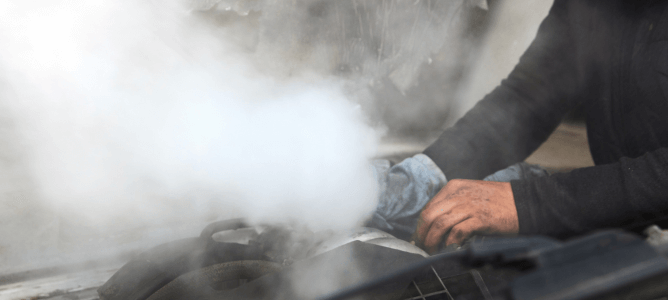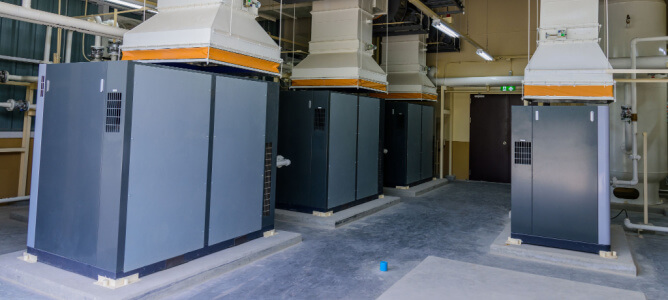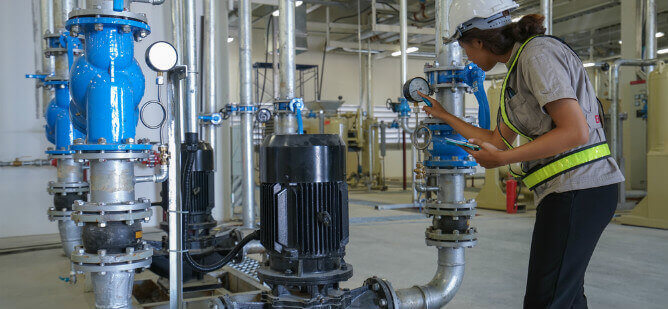
Is Your Industrial Air Compressor Overheating? Causes & Solutions
Air compressors keep industries running, from powering tools to supporting industrial processes. But overheating is a common issue that can hurt efficiency, lead to expensive air compressor repairs, or even cause system failure. This guide breaks down how air compressors work, why they overheat, what happens when they do, and the warning signs to catch problems early.
How Do Industrial Air Compressors Work?
Industrial air compressors generate compressed air to power tools and equipment by pulling in ambient air, compressing it, and storing it in a tank. Proper ventilation helps prevent heat buildup, while preventive maintenance (like checking oil levels and lubrication) keeps everything running efficiently. High discharge temperatures can signal potential issues, so monitoring performance is key. Knowing how these systems operate can help prevent compressor overheating and keep operations running without interruption.
Common Causes of Overheating Air Compressors
- Poor Ventilation – Blocked or inadequate airflow around the compressor traps hot air, leading to excessive heat buildup. Keep vents clear and ensure proper spacing around the unit.
- Low or Poor-Quality Oil – Insufficient lubrication increases friction, causing internal components to work harder and generate more heat. Regularly check oil levels and use the correct grade for your compressor.
- High Ambient Temperatures – Hot operating conditions, especially in poorly ventilated areas or during summer, force the compressor to overheat faster. Installing fans or cooling systems can help regulate temperature.
- Mechanical Failures – Worn-out bearings, faulty thermal valves, or restricted cooling systems prevent heat dissipation. Inspect components for signs of wear and replace damaged parts as needed.
- Dirty or Clogged Filters – Restricted airflow from dirty intake filters makes the compressor work harder, leading to overheating. Clean or replace filters regularly to maintain efficiency.
- Blocked Condenser Coils – Dust, debris, or grease buildup on condenser coils reduces heat dissipation, increasing compressor temperature. Routine cleaning improves cooling performance.
- Extended Run Times – Running the compressor for long periods without breaks can cause overheating. If continuous operation is required, consider using a larger compressor or additional cooling equipment.
- Incorrect Voltage Supply – Power fluctuations or improper electrical connections can overwork the compressor motor, generating unnecessary heat. Ensure stable voltage and check wiring connections.
What are the Consequences of Overheating?
Overheating can have severe consequences for air compressors. It can cause damage to internal components and significantly reduce the compressor’s lifespan. Excessive heat leads to decreased performance, reducing air output and air compressor efficiency. Furthermore, overheating can cause oil breakdown, leading to increased friction and accelerated wear on compressor parts. This affects the overall functionality and increases energy consumption and operating costs.
4 Signs Your Industrial Air Compressor is Overheating
It is important to always be on the lookout to know when your air compressor starts acting unusual. That way, you can prevent costly downtime or any unnecessary production loss. Watch for these signs that tell you when your compressor is overheating:
1. Abnormal noise levels
Strange grinding or rattling noises could mean your compressor is overheating. A sudden change in sound is often a sign of a mechanical issue. Keep an ear out – catching these noises early can help prevent bigger problems. If the noise doesn’t stop, shut the compressor down and check for worn or damaged parts.
2. Rising discharge temperatures
Low refrigerant or poor lubrication can lead to high discharge temperatures. Keep an eye on temperature gauges to avoid internal damage. If temps keep climbing past normal ranges, find the cause and fix it before it leads to bigger issues.
3. Frequent shutdowns due to temperature limits
Frequent shutdowns of air compressors can occur when the temperature limits are reached. These temperature limit settings are built-in safety features designed to protect against air compressor overheating. When a compressor repeatedly shuts down due to temperature limits, it is a clear indication of overheating. Automatic shutdown features help prevent further damage and allow the compressor to cool down. It is important to investigate potential causes, such as inadequate ventilation or mechanical problems, to address this issue.
4. Unusual vibrations
Unusual vibrations during compressor operation may indicate overheating or mechanical issues. These vibrations could indicate misalignment, worn-out parts, or imbalance within the compressor. Addressing and resolving the cause of these vibrations can prevent further damage to the compressor. Including daily monitoring of vibrations as part of routine maintenance ensures optimal performance.
5 Preventive Measures
To prevent an air compressor from overheating, conducting routine maintenance is crucial. Here’s what you can do to avoid trouble.
1. Regular maintenance and inspection schedules
Inspecting the compressor regularly will help identify any signs of wear or damage. Additionally, clean and replace air filters regularly to ensure proper airflow. Checking for leaks in the system is also vital to prevent overheating. Lastly, always follow the manufacturer’s guidelines for routine air compressor testing, maintenance, and service.
2. Ensuring proper ventilation and cooling
Good airflow is key to keeping your air compressor from overheating. Clear away any debris or blockages around the vents so air can move freely. If you’re working in a hot environment, fans or extra cooling equipment can help manage excess heat. A cooler or heat exchanger can also bring down operating temperatures. Placing the compressor in a well-ventilated area will keep your air system running efficiently.
3. Monitoring and controlling operating temperatures
Maintaining the ambient temperature within the recommended range and utilizing thermal valves or temperature sensors to track and control compressed air temperature levels is important. Adjusting the compressor’s settings to ensure optimal operating temperatures can help prevent overheating. Additionally, implementing automatic shutdown features can provide an extra layer of protection against overheating.
4. Proper lubrication and fluid levels
To prevent overheating in air compressors, it is crucial to ensure proper lubrication and maintain appropriate fluid levels. Regularly check and maintain the oil levels in the compressor as per the manufacturer’s recommendations. Always use the recommended lubricant that suits the specific requirements of your air compressor. Monitor the oil quality and viscosity regularly to avoid any issues. Lubrication of internal parts is essential to prevent friction and overheating. Additionally, make sure to drain the condensate regularly to avoid moisture buildup.
5. Adjusting pressure settings according to requirements
By setting appropriate pressure limits, you can prevent overworking the compressor and minimize the risk of overheating. During periods of high ambient temperature, consider using lower pressure settings to alleviate strain on the system. To ensure the proper adjustment of pressure settings, consult the manufacturer’s guidelines for recommended values. This will help you achieve optimal results while extending the lifespan of your air compressor.
Troubleshooting Overheating Issues
To troubleshoot air compressor overheating, it is important to identify the most common reasons for this problem. Start by doing the following:
- Check the air filters – Clogged or dirty filters restrict airflow, making the compressor work harder and causing overheating.
- Inspect the discharge line and cooler coils – Blockages or damage can trap hot air, increasing operating temperatures.
- Verify the voltage supply – An incorrect or unstable power supply can lead to heat buildup.
- Monitor refrigerant levels – Low refrigerant or leaks can reduce cooling efficiency and contribute to compressor overheating.
Don’t let excessive heat compromise your industrial air compressor operations. Contact NiGen today to find the right solution for your needs.

Tips for Choosing the Right Air Compressor
When choosing an air compressor, consider your specific requirements and usage. Determine your applications’ necessary horsepower and CFM (cubic feet per minute). Evaluate the available space and consider the size and portability of the compressor. Assess the power source options, such as electric, gas, or diesel, based on your needs. Additionally, research and compare different air compressor brands and models to find the one that suits your needs best.
Explore NiGen’s Line of Air Compressors
NiGen offers a wide range of commercial air compressors designed to handle demanding operating conditions while minimizing excessive heat buildup. Our compressors are built to deliver reliable compressed air supply, even in high-temperature environments where an overheated compressor can disrupt operations.
Proper airflow, regular service, and high-quality components help prevent compressor overheating, allowing your system to maintain peak performance without forcing it to work harder than necessary. So if you need a rental for a temporary project or a long-term solution, NiGen’s advanced compressors are engineered to withstand tough conditions and keep hot air and heat-related issues under control.
Contact us now or browse our selection of air compressor rentals in Houston.

